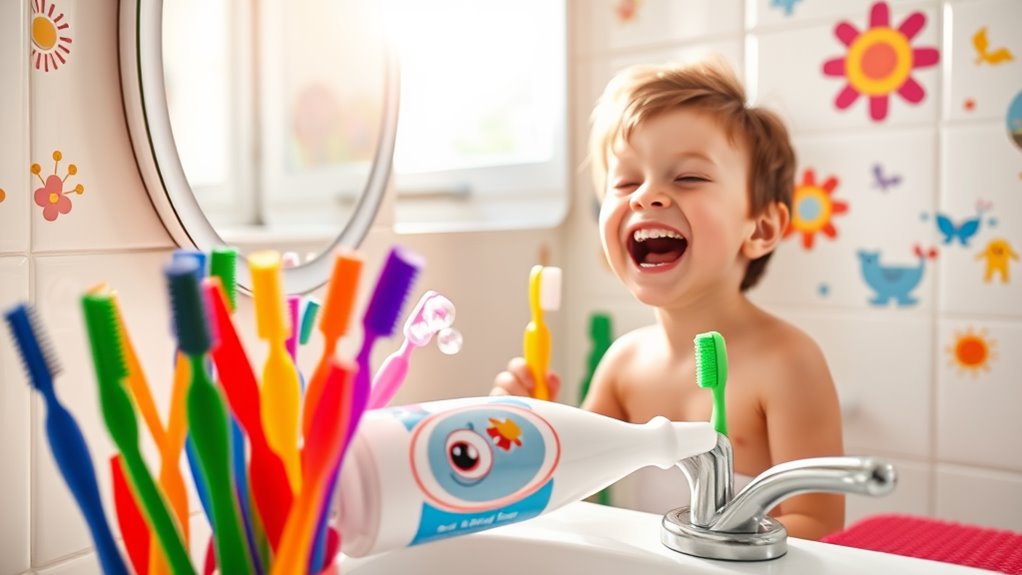What I Wish I Knew About Baby Teeth Sooner
What you wish you knew about baby teeth sooner is crucial for your child’s dental health. Baby teeth start to emerge around six months, and by age three, they’ll have a complete set. Early dental visits can spot issues and set good habits. Maintaining oral hygiene is key, from wiping gums to using a soft toothbrush. Understanding teething symptoms and nutrition can help as well. There’s even more to learn about transitioning to adult teeth and ensuring lifelong dental health.
The Timeline of Baby Teeth Development
Most parents are surprised to learn that baby teeth, also known as primary teeth, typically begin to emerge around six months of age.
By the time your child turns three, they usually have a full set of 20 primary teeth.
It’s crucial to establish a baby teeth care routine early, as this sets the foundation for healthy dental habits throughout your child’s life.
Importance of Early Dental Visits
While some parents may not think it’s necessary to visit the dentist until their child has a full set of teeth, early dental visits can play an essential role in ensuring your child’s oral health.
Consider these benefits:
- Detecting early signs of dental issues.
- Establishing a positive relationship with the dentist.
- Receiving guidance on proper oral care practices. Additionally, early visits can help shape the child’s mouth and promote optimal alignment for permanent teeth.
Proper Oral Hygiene for Infants
How can you ensure your infant’s oral health right from the start? Start by gently wiping your baby’s gums with a soft cloth after feedings, even before teeth appear. Once the first tooth emerges, switch to a small, soft-bristled toothbrush and a tiny smear of fluoride toothpaste.
| Action | Frequency |
|---|---|
| Wipe gums | After each feeding |
| Brush teeth | Twice daily |
| Dental check-up | Every six months |
Common Teething Symptoms and Remedies
As your infant begins to grow, you might notice signs of teething, which can be a challenging time for both babies and parents.
Common symptoms include:
- Increased drooling
- Irritability and fussiness
- Sleep disturbances
To ease discomfort, you can offer a chilled teething ring, massage their gums with a clean finger, or provide soft, cold foods like applesauce.
Nutritional Factors Affecting Baby Teeth
Although you mightn’t think about it often, the nutritional choices you make for your baby can significantly impact their dental health.
A balanced diet rich in vitamins and minerals, particularly calcium and phosphorus, supports strong teeth. Reducing sugary snacks and drinks helps prevent cavities. Calcium intake optimizes remineralization, helping to repair microscopic enamel damage in baby teeth.
Prioritizing nutritious foods sets a solid foundation for your baby’s dental health, ensuring their smile remains bright and healthy.
Transitioning to Adult Teeth: What to Expect
After laying the groundwork for strong baby teeth through proper nutrition, you might wonder what happens next in your child’s dental development.
Transitioning to adult teeth is an exciting step. Here’s what to expect:
- Baby teeth will gradually loosen and fall out.
- Adult teeth begin to emerge in their place.
- Regular dental check-ups will help monitor this transition.
- Engaging children in their dental care routine using a colorful timer can make this process more enjoyable for them.
Your child’s smile is on its way!




